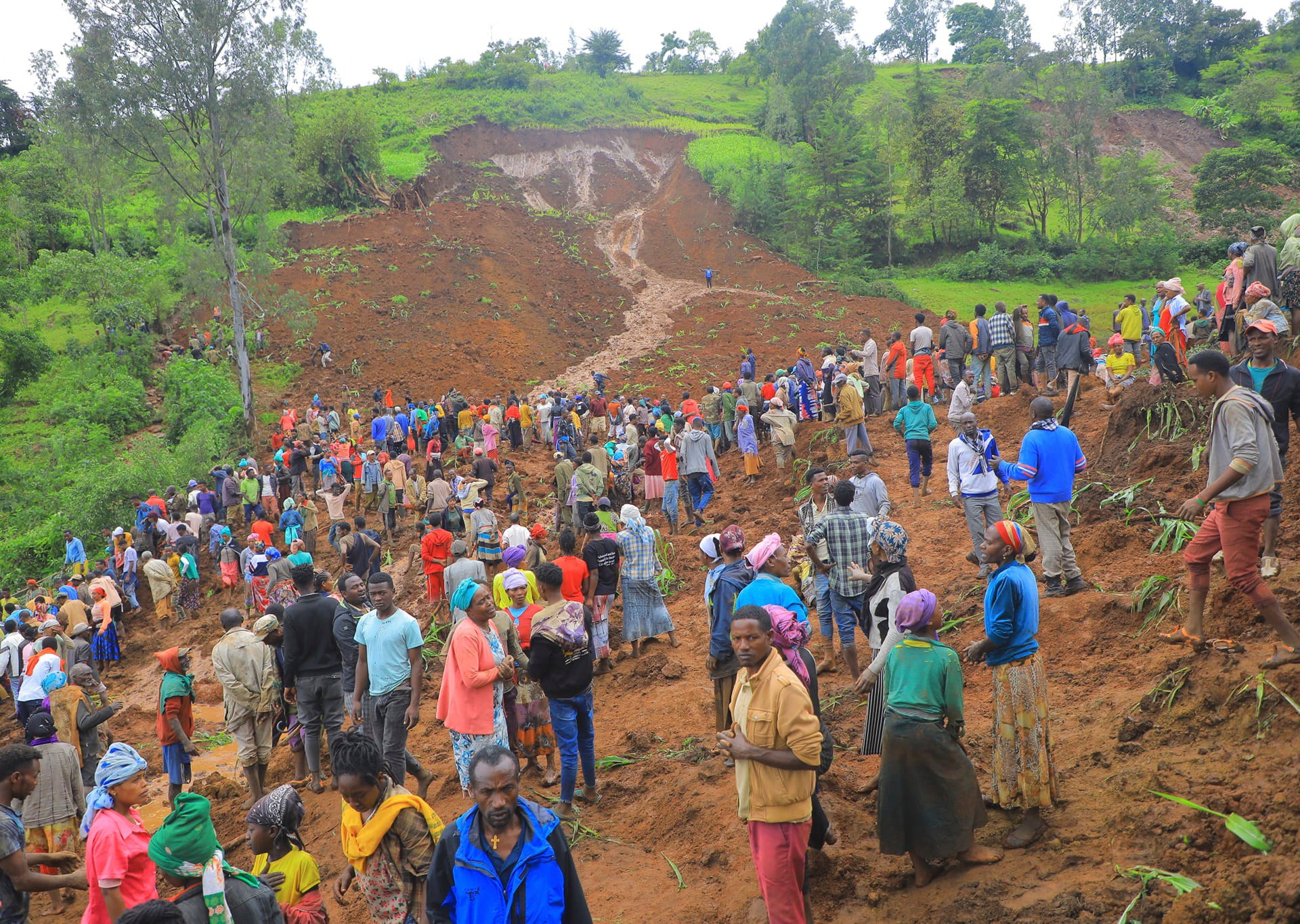
Residents seen using bare hands to dig through dirt in search of survivors in remote, mountainous area.
The death toll from two landslides in southern Ethiopia has risen to more than 100 people, according to government officials, who warned the number could increase.
The first landslide, triggered by heavy rains in a remote region of Gofa zone, occurred on Monday and was followed by a second one that buried people who had gathered to help, state officials said on Tuesday.
At least 157 bodies had been recovered from two villages, Markos Melese, the zonal head of the national disaster response agency in Gofa, told the Reuters news agency by phone, adding that the search was ongoing and “there are bodies that are yet to be recovered”.
Citing Gofa officials, the AFP news agency reported at least 146 dead, while The Associated Press news agency said the death toll had risen from 55 people to 157.
“Initially it was three families that were buried by the landslide. We are still searching for bodies. But the death toll surged after the people who came to rescue also got trapped,” said district administrator Misikir Mitiku.
As images showed people digging into the red earth with their bare hands, Mitiku said they would need earth-moving machines to assist in the recovery operations.
Gofa is part of the state known as the Southern Nations, Nationalities and Peoples’ Region (SNNPR), located about 320km (199 miles) southwest of the capital, Addis Ababa.
Kemal Hashi Mohamoud, a parliamentarian, told Al Jazeera from Addis Ababa that the second landslide happened “a few minutes” after the first. “People are preparing shelter and giving them food,” he said.
Dagmawi Ayele, a local administrator, told AP that children and pregnant women were among the victims.
Images shared on social media by the state-affiliated media outlet Fana Broadcasting Corporate showed hundreds of people near the devastating scene of tumbled soil, using their hands to dig through the dirt.

The state has been battered by the short seasonal rains between April and May that caused flooding and mass displacement, according to the United Nations Office for the Coordination of Humanitarian Affairs (OCHA).
It said in May that “floods impacted over 19,000 people in several zones, displacing over a thousand and causing damage to livelihoods and infrastructure”.
The southern region has experienced landslides previously, with at least 32 people killed in 2018 after two separate incidents within a week of each other.
The flooding and landslides occurred even as other parts of the country are facing severe drought, which has prompted traditional herding communities to explore alternative food production methods.
The UN reports that millions in the country face malnutrition due to recent climate-related challenges.









